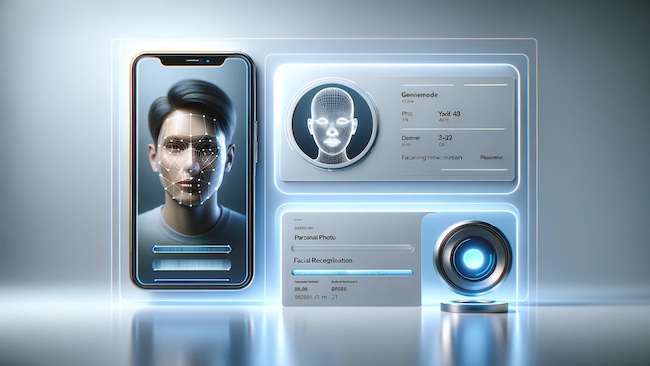Find Best Identity Verification Software for Your Business
We help you find the right Identity Verification Software for your business.

Browse Popular Identity Verification Software
Up-to-date listing of Identity Verification Software to assist you throughout your software selection and purchase journey.
Identity Verification Software is a crucial tool in the modern business landscape that enhances security, trust, and compliance by accurately confirming the identity of individuals. This technology plays a pivotal role in safeguarding businesses against fraud, ensuring regulatory compliance, and building a secure and trustworthy environment for both customers and organizations.
Key Features of Identity Verification Software:
- Biometric Recognition: Utilizes advanced biometric technologies like fingerprints, facial recognition, or voice recognition for highly accurate and secure identity verification.
- Document Authentication: Examines and verifies official documents, including passports, driver's licenses, and other identification papers, to ensure the authenticity of user-provided information.
- Real-time Verification: Provides instant and real-time verification capabilities, enabling businesses to make prompt decisions while onboarding customers or processing transactions.
- Multi-Factor Authentication (MFA): Incorporates multiple layers of verification, such as biometrics, document checks, and knowledge-based authentication, for enhanced security and resilience against fraud.
- Knowledge-Based Authentication (KBA): Poses specific, personalized questions that only the legitimate user would know, adding an additional layer of security to the verification process.
- Compliance Tools: Includes tools and features to ensure businesses meet regulatory requirements and industry standards for identity verification, especially in finance, healthcare, and other regulated sectors.
- Audit Trails and Reporting: Maintains comprehensive audit trails and generates detailed reports, providing businesses with a record of identity verification activities for compliance and analysis.
- Fraud Detection and Prevention: Incorporates advanced algorithms and machine learning to detect and prevent fraudulent activities, adding an extra layer of security to identity verification processes.
- Secure Storage and Data Protection: Ensures secure storage of sensitive user data and complies with data protection regulations, prioritizing the privacy and security of verified information.
Use Cases for Identity Verification Software:
- Preventing Identity Theft: Identity Verification Software helps businesses safeguard against identity theft, reducing the risk of unauthorized access to sensitive information.
- Fraud Prevention: By accurately verifying identities, the software mitigates the risk of fraudulent activities, protecting businesses from financial losses.
- Risk Reduction: Implementing Identity Verification Software minimizes financial risks associated with unauthorized transactions and fraudulent activities.
- Compliance with Regulatory Requirements: In industries such as finance, healthcare, and e-commerce, regulatory bodies require stringent identity verification. The software ensures businesses comply with these regulations.
- Secure Online Transactions: Identity Verification Software is crucial for securing online transactions, providing a trust foundation for both businesses and customers.
Types of Identity Verification Software:
- Biometric Verification: Utilizes unique physical or behavioral characteristics such as fingerprints, facial recognition, or voice recognition for precise and secure identification.
- Document Verification: Authenticates identity by scrutinizing official documents like passports or driver's licenses, ensuring the legitimacy of user-provided information.
- Knowledge-Based Authentication (KBA): Verifies identity by posing specific questions that only the legitimate user would know, adding an additional layer of security to the verification process.
Offering Identity Verification Software?
Customers in the market for Identity Verification Software are actively browsing on SaaSUncovered. Be certain they come across your Identity Verification Software.
Get ListedFrom our blog







